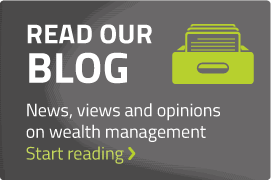June Market Commentary
The second quarter has been somewhat of a game of two halves for markets – with strong performance over the first period, a pause for consolidation around the UK election; contrasted by a sell off in the second, with the Greek government standing firm against their creditors as they seek a resolution to their mounting debt problem. Below we sum up the story so far and look at what it means for markets going into the third quarter.
Markets appeared to start the quarter similarly to how they’d ended the last: pushing higher as the rally from the start of the year continued with Europe now assisted by the commencement of the ECB’s quantitative easing (QE) programme. With the QE program to the fore and a series of compromise agreements keeping the travails of Greece in the background, markets were able to break new ground. Eventually, however, a pause for breath and consolidation occurred, with one of the most uncertain UK general elections on record looming in early May.
A conservative majority provided the certainty that markets like and this gave rise to a further rally in UK stocks, with the FTSE 100 closing above 7000 once again. However, this time the spectre of Greece was harder to ignore. By June not only had talks with their creditors barely progressed, but there was also a sell-off in the bond market prompted by a lack of demand in a German Government bond auction. These together combined to spook investors and prompt unilateral sell-offs.
In a move that was unlikely to calm markets, taking advantage of a rarely used procedure permitted under IMF legislation, Greece followed Zambia’s, arguably failed, example from the 1980s and opted to bundle all of its monies owing together into one payment at the end of June, totalling €1.5bn. However, with talks since failing it seems most likely that Greece, like Zambia, will default on the monies due.
This would set off a chain reaction that could see the return of the Drachma and a disorderly exit from the eurozone. However, whilst currently the outcome is uncertain, a last minute compromise-agreement to release funds from the European Union, and therefore avoid default, is probably still the most likely result. Should a resolution occur, even a temporary one, it could prompt a return to market levels seen earlier in the quarter. Developed countries are still growing their GDP figures, companies are continuing to perform well and wages are beginning to grow; giving domestic households greater disposable income and thereby providing a boost to consumer spending. All of these are positives for company returns and therefore by proxy index returns.
So as the quarter comes to a close, we are in interesting times. Volatility will more than likely continue as uncertainty over Greece weighs on investor sentiment. However, one can only hope that the spotlight is shortly refocused from geo-political and macroeconomic issues, back to the strong fundamentals.
This article was provided by Brooks MacDonald Asset Management.
![]()




